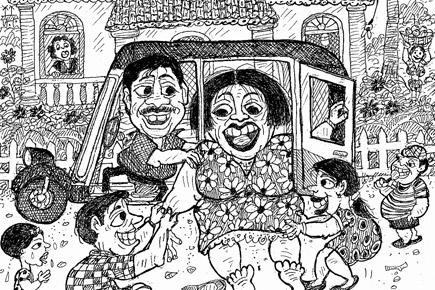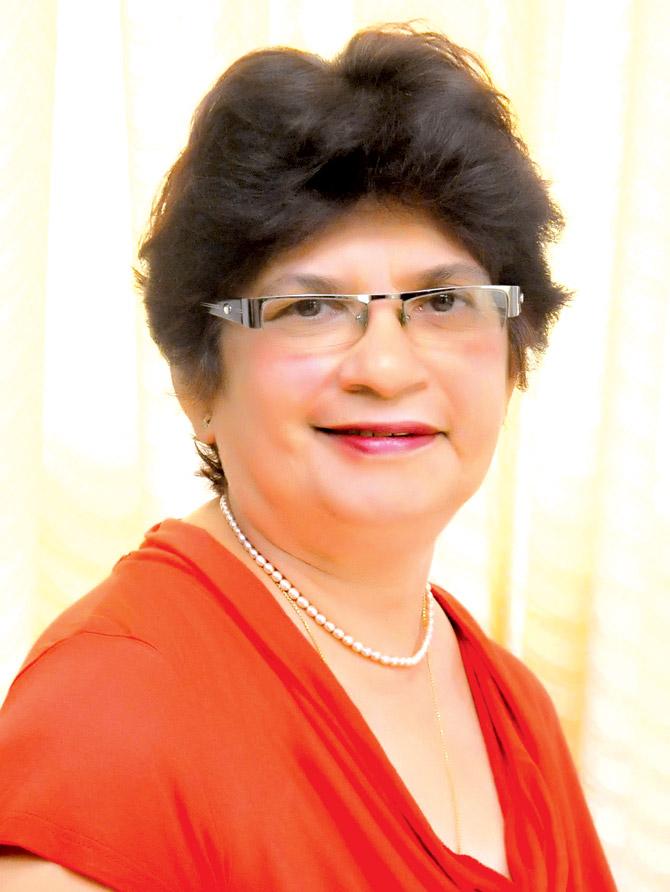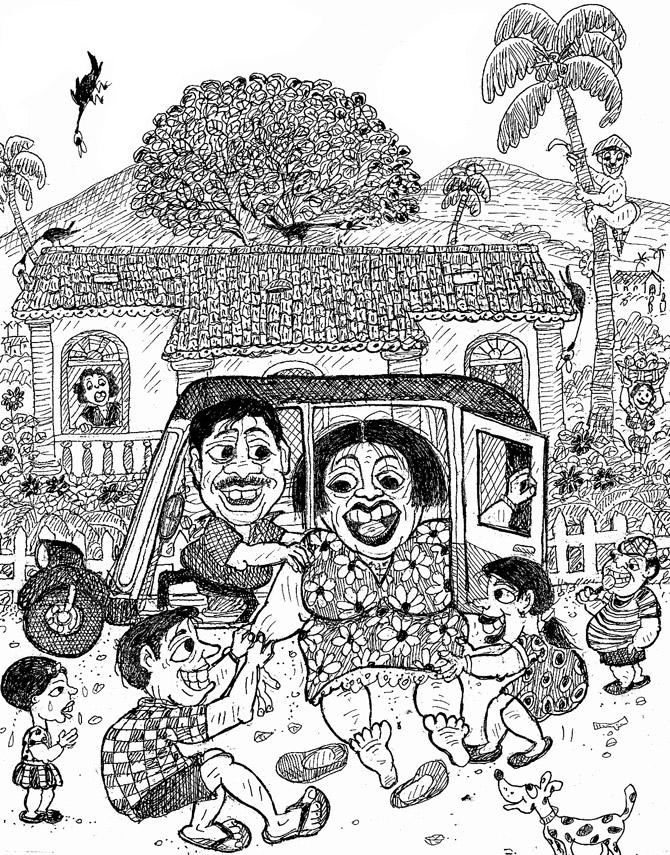For the first time, kids in Goa will read Portuguese translations of Anita Pinto's tales, that talk of Goans and their quirks


Anita Pinto
ADVERTISEMENT
Five years ago, when author Anita Pinto wrote Espi Mai Is Stuck Again and other Goan tales, a colourful book of stories for children, little did she imagine that a couple of years down the line, the same book would be available in Portuguese.
"And, interestingly, I can't speak a word of Portuguese to save my life," laughs Pinto, while chatting with us from her sleepy town of Mapusa, 13 km north of Panjim, Goa. "But, when my publisher Frederick Noronha called to tell me that he has found volunteers willing to translate the book for free, I couldn't be more thrilled," adds the 69-year-old.
The 136-page book comprising 21 delightful adventures was first published in English. Rustic and real, the stories have no morals to thrust down young throats. Espi Mai, after whom the book is named, is an elderly aunt from Mumbai, who's so overweight that she gets stuck in the autorickshaw. "They are just stories that can be read to children or by children," says Pinto. While she had originally penned 21 stories, the Portuguese version has 16. "Being a poet, I have peppered the pages with Konkani words, that might be difficult to translate," she adds.

An ilustration by Goa's popular cartoonist, Alexyz Fernandes from the book
When the book hit the shelves in 2011, Pinto with her charming narration and relatable characters filled a gaping void when it came to children's books in Goa. "I just created identifiable situations with local Christian and Hindu characters, that children come across in daily life," she says. The popularity caught on to the extent that eight months later, her publisher Noronha received a request to get the work translated into Konkani. "While Isidore Dantas, founder of the Konkani Bhasha Mandal in Pune translated the stories, Pandharinath Lotlikar, former director of Doordarshan and editor of Paklleo, a Konkani magazine, handled the poems. Both offered to do it for free. They corresponded only through email and got the Konkani translation in place," he says.
On Children's Day in 2012, it was published in a Roman-script Konkani edition, titled 'Espi May Porot Xirkoli... Ani Goycheo Her Kannio', together with a reprint of the English-language edition. This week, the team launched its Portuguese version, too. "Goa has a colonial connect with Portuguese. The Portuguese rule in Goa lasted for as long as 450 years. So, locals above the age of 60 can speak the language, but there was a need to make it popular among kids as well," says Noronha. Currently, Goa has 800 students studying the language.
However, translating the book meant incurring expenses that the publishing team initially lacked. "It's a costly affair to get a book translated into a European language. So, we went online and asked for volunteers to translate at least one story each. Much to our delight, ten people, most of whom didn't even know each other or the publishers, responded to the appeal and volunteered to do the translation, online itself," he says. The book has been co-published by Fundacao Oriente, an organisation that carries out cultural and artistic activities in India with, for historical and cultural reasons, special emphasis on Goa.
This book contains the same characters as the original — Ginger the Dog and Devika the Duck who lived at seven-year-old Kris Souza's farm at Valpoi, and Norma the lace-maker in Raia. There's also little Joanna, who is the fourth after three brothers, and has to battle the belief that she's born unlucky, going by the age-old Goan superstition. "Goans are fascinating people, with their own set of quirks. The characters have been culled from the people I've observed here. They are all very relatable," says Pinto. However, Pinto has one worry with the Portuguese version. "The Portuguese that they speak abroad, and the one they speak in Goa is quite different. I just hope people don't get offended, and see it for what it is — a story for children."
 Subscribe today by clicking the link and stay updated with the latest news!" Click here!
Subscribe today by clicking the link and stay updated with the latest news!" Click here!






